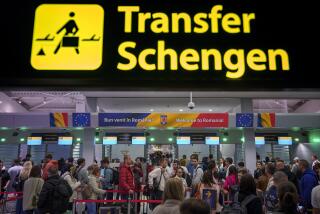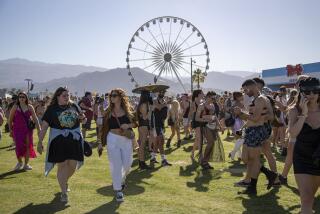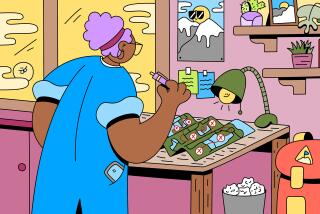Camping across Europe in a van
We’re packing the mobi for a madcap trip across Europe to see as much as we can in 18 days. If this trip goes badly, it’s our daughter’s fault. This is her idea, pitched from her apartment in downtown Antwerp during a call months earlier.
“Come visit us,” she said.
“And rent a mobi and travel around,” the boyfriend added. “It’ll be cheaper than hotels and restaurants.”
It conjured up old memories of exploring the Pacific Coast and the Canadian Rockies in our ’73 Ford Econoline camper conversion, perfect for two.
“I’ll come too,” Cassie said.
The last time Cassie joined my wife, Jeanne, and me on a camping trip she dismissed it as uncivilized and swore her allegiance to resorts. She was 13, maybe 14. After college she worked as an excursions escort for an Italian cruise ship and on the front desks at Club Med on Turks and Caicos and at the Bellagio in Las Vegas.
And now the three of us are going to spend 18 days cooped up in a small RV, sharing a bathroom so small the toilet seat swivels sideways to save space.
“And Kurt can join us for the last week,” Cassie said.
We’ve loaded the mobi: pasta, frozen chicken, bottles of iced tea (Cassie says we’ll buy wine in Germany), cookware, garage-sale silverware, canvas-sling camping chairs, four travel-advice books, seven maps, four cameras and walkie-talkies in case we get separated somewhere. And because I did my homework, I have my international driver’s license and an international camping card that somehow vouches for us so we don’t have to leave our passports with campground managers as security every night.
The stage is set: We will careen across Europe, planning only one day at a time and relying on the advice of a mischievous GPS that I hope will point us to Slovakia, not Slovenia.
We have no reservations. I have lots of reservations.
Day 1
We ask GPS to send us to Heidelberg, Germany. En route, it takes us to Trier, the oldest city in Germany, once protected by a towering stone gate erected by Romans in the 2nd century.
After a 30-minute hunt for a parking spot large enough to accommodate us, we find space along a residential street half a dozen blocks from the historic section. An old man approaches us, shaking his hands wildly and shouting in German, pointing to a street sign that says something we don’t understand. We smile and walk to the Roman gate and take the first of what will be thousands of pictures.
By late afternoon we reach Heidelberg. The GPS doesn’t recognize the address we type in for the campground, but a street sign depicting a tent points to the riverfront. After settling in, I discover that our little refrigerator-freezer hasn’t frozen ice for my evening Scotch and Drambuie. The camp store clerk says he doesn’t sell ice. I say I really need some. Why? For my Rusty Nail. Tell you what, he says. I’ll get you ice if you pour me a Rusty Nail. Deal.
Day 2
A German police van passes us, and the young officers wave for us to follow them as they pull off the road. I recall someone’s advice: Don’t let police lean on you for money, so I pull a bunch of euros out of my fanny pack and tell Cassie to hide them.
The female officer asks, “Sprechen sie Deutsch?” No. “You’re American,” she says with displeasure. “Oh, great.” Her partner, in broken English and using his hands, tries to explain what I did wrong and then draws a picture. When two lanes merged to one, I didn’t pull over quickly enough.
That will be 116 euros, he says. Aha! I’m ready. I open my fanny pack and pulled out all my cash: 23 euros. “I’m sorry,” I say.
“We take American Express,” he says.
Day 3
Our campsite alongside the beginning of the Danube River in the Black Forest, in the shadow of a towering granite bluff, is reminiscent of Yosemite, very tranquil. But the mobi is developing problems.
The lock on the side door breaks. We can lock it from the outside but not inside. So from now on, at night, we secure the door shut with bungee cords. If someone breaks in, he’ll think someone is fighting him.
We have to dump our sink-water tank at the service bay behind the camp store, but when I turn the valve, it just spins in useless circles. Apparently our waste water has been draining every time we use the sink. That’s why our camp site is so wet. Our mobi can’t hold its water.
Day 4
We stop in Biberach, Germany, because my insurance company’s health coach, a woman named Monica who calls me every two months about losing weight, admonished me to stop by the family bakery, say hi to her cousins and eat some strudel. Cousin Gertrude thinks this is fabulous and feeds us lunch and loads us up with pastries. Gertrude tells me to lean on Monica to attend the family reunion in Florida this year. I’ll pass it along to Monica the next time we talk about my weight problem, which just got worse.
Day 5
At a crowded beer garden in Munich, we’re chatting with couples from France, Germany and South Africa. This is like a TGIF party at the United Nations. When we part ways, we hug as if we’re old friends. Everyone invites everyone else to come visit.
I hear a voice. “Tom? Tom!” At the next table is a co-worker from Las Vegas. What are the odds?
Day 6
We’re on a bus-and-walking tour of Prague, a stunning city in the Czech Republic. The tour guide, who speaks Czech, French and English, says he’s been doing this for 35 years. I ask him what constitutes a bad day at the office.
“It’s when the tour operator says he has set you up with a bus of English speakers and, when you get on the bus, it turns out they speak Turkish, Chinese and Portuguese.”
Day 7
In Poland, we camp about a quarter-mile from the front gates of Auschwitz, at a quiet hotel and campground operated by a Catholic organization as a retreat center for people needing to talk about the Holocaust.
What I find most depressing about Auschwitz, more than all the baby shoes, the luggage, the bales of women’s hair, the single candle flickering in the gas chamber, are the black-and-white photographs of the men. It’s their eyes. Some are filled with despair or resignation. Some look stunned, bewildered, confused. Some look defiant and angry.
We head for Krakow, Poland, and the GPS sends us down a highway that abruptly ends. We go into a market, seeking directions. One man speaks English, and he shares our question with the clerk and a line of customers. Everyone starts offering different advice on the best way to Krakow. The man shrugs. “Just follow me,” he says. We drive three miles to a traffic circle. He waves us off on the third exit. We toot horns.
Day 8
Back in medieval times, Krakow had the largest plaza. Today we visit St. Mary’s Cathedral, which inside is the most beautiful church I’ve ever seen. A bishop who said Mass here years ago is better known now as John Paul II. About 50 feet away is a Hard Rock restaurant.
For dinner, we find a quiet, authentic restaurant off the beaten path. The bread is served with pork lard.
By now it is too late to find a campground, so we slip the downtown parking lot attendant 20 euros and spend the night on his patch of asphalt.
Day 9
We explore the Wieliczka Salt Mine on the outskirts of Krakow, where for 900 years miners carved statues, altars and other monuments out of the rock-salt walls during their free time. Back on the ground, we wonder why the GPS seems to be taking us on the narrowest, most winding roads conceivable as we enter Slovakia, but the lakes and forest are beautiful.
There doesn’t seem to be a border stop. This is the new Eastern Europe.
Along the two-lane highway, which is filled with potholes, three dogs are attacking a chicken. The chicken is winning.
That night we have trouble finding our campground in Trencin, Slovakia. The GPS sent us to an abandoned rail yard, and we’re feeling anxious. A man rushes up to us. He doesn’t speak English, but when we show him the name of the campground, he draws us a very good map and smiles broadly. The GPS was off the mark by four miles.
Day 10
By plane to Vienna and then by train across the border, Kurt joins us in Bratislava, the capital of Slovakia. We’ll have lunch in old town and pay attendants at a dirt parking lot large enough to handle the mobi. As always, I take my laptop with me in my backpack, but Kurt leaves his behind. He’ll never see it again. Cassie’s jewelry will be gone too, but whoever broke into the mobi while we were eating lunch doesn’t take our iPods, hidden cash or other valuables.
It’s not clear how they got in. Maybe they jimmied the front door. Maybe the thieves were in that motor home next to us and used a device to record the key fob’s signal, and replayed it. What if I forgot to lock all the doors?
This night, at our campground in Vienna, Kurt and Cassie are standing in front of the mobi. She is looking up at him, and her eyes are wet -- and smiling. Now she’s embracing and kissing Kurt, then stepping back and looking at him again with eyes of joy. Kurt is proposing to our daughter.
Vienna is a beautiful city with spacious parks, magnificent monuments and stately buildings. But I’ll always remember the campground.
Day 11
In Vienna, Cassie’s radar finds a Tiffany & Co. store. Kurt looks distressed. Cassie knows exactly what she wants, and we’re invited to the diamond collection upstairs. The saleswoman mentions the price and oh, poor Kurt. The saleswoman offers champagne. We say we have a train to catch and we leave, but Cassie lingers over the counter. Cassie, come on, Cassie!
Day 12
We are fascinated by a church cemetery in Salzburg where wrought iron replaces traditional headstones and every grave site is a miniature flower garden. I’m even more fascinated by a cheese-dumpling soup at a nearby dinner house.
By nightfall we arrive at our campsite in Innsbruck, Austria. It is closed and under reconstruction. A nearby hotel refers us to a campground two miles away, behind a pizza parlor. The guy wants 50 euros. He knows he’s the only game in town. At his counter, he has brochures for that hotel. Quid pro quo.
It’s not until the light of morning we realize we’re nestled among snow-capped mountains.
Day 13
At the ski-jumping stadium at Innsbruck, used for two Olympic Games, a handful of jumpers are training in the summer by landing on what looks like long, fake grass made slippery by water sprayers. We eat at the restaurant at the top of the jump tower -- and realize that when the jumpers are flying through the air, just beyond the tips of their skis they can see a big cemetery. Lovely.
We spend too much time there and at dinner in Zurich (where the Japanese couple sharing our table seems to enjoy my friendly banter but leaves right after their last bites). By the time we find our campground in Lucerne, Switzerland, the gates are closed. We spend the night in a city parking lot that bans overnight camping. It’s called “free camping,” and we get away with it.
Day 14
I know you can find swans just about anywhere, but there’s something about the covered bridge and old water tower that makes Swiss swans a bit more special. We window-shop, then head for the merchants alongside the lake. One booth sells New York Yankees baseball caps.
We head deeper into the Alps, and I get to choose where to have lunch. I now own a Hooters T-shirt from Interlaken, Switzerland.
Day 15
We want to see Mont Blanc, the highest mountain in the Alps, and to get there the GPS sends us through Martigny, Switzerland -- where the Tour de France started the day this very morning. We forge ahead and battle hundreds of Spandexed bicyclists -- not part of the competition -- pedaling out of town, hogging the narrow mountain roads. I pass one on a hairpin turn just as a propane truck comes from the other direction. Later, as we’re heading downhill, the bicyclists are passing me up.
By nightfall, we’re camping lakeside in Geneva. We forgot to go grocery shopping and are eating cheese and bread. But I’m relaxed. There are no bicyclists in sight. And like every other night, we secure the side door with bungee cords.
Day 16
Before we leave Geneva we need diesel. We ask the GPS for help, and she sends us down a narrow downtown street to a farmer’s market. There’s no gas station.
Where to stay tonight? One of the travel books mentions a campsite in Plombières, France, far off the main highway. The GPS cooperates. We have found the quintessential postcard village, with old women walking home from church and the bakery selling baguettes for 1 euro. I buy éclairs, but please don’t tell Monica, my health coach.
Day 17
Kurt insists we visit Luxembourg before we blink, and it passes us by. Over lunch -- lasagna -- we talk about what is authentic European food. Hungarian goulash is popular everywhere. So are kebabs and pizza. McDonald’s and KFC are ubiquitous. And I remember that the best smell in Krakow was freshly baked bread -- at a Subway sandwich shop.
Day 18
We’re back in Antwerp, after 10 countries, 2,982 miles, 8,766 photos, one traffic violation, one break-in, invitations to stay with new friends in Switzerland, Germany and South Africa, and one marriage proposal.
I ask Jeanne if she’d do it again. She says yes.
Gorman’s blog of the trip is at GormanStories.com.
More to Read
Sign up for The Wild
We’ll help you find the best places to hike, bike and run, as well as the perfect silent spots for meditation and yoga.
You may occasionally receive promotional content from the Los Angeles Times.






